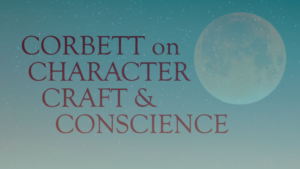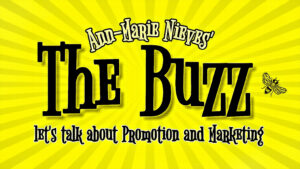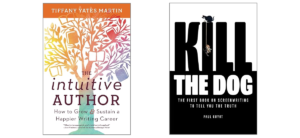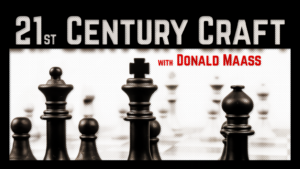business
Books have been getting a lot of bad press lately. According to Penn America’s website, pen.org, more than 16,000 book bans have been implemented in U.S. public schools since 2021, 4,000 of which occurred in the 2023-2024 school year alone—more than at any other time since the McCarthy era of the 1950s. Public libraries have been under assault as well, with many people questioning their relevance and even advocating for their closure.
Estimates vary as to when books as we know them were first produced, but for the majority of time since the middle of the 15th century, when the invention of the printing press made them available to common people, books were considered precious objects by those who owned them.
The idea that books were treasures held true well into the 20th century, a fact I was reminded of recently when I pulled a few antique volumes off of a shelf in my living room. These clothbound gems, a couple of which were published in the mid-1800s, are marvels to behold.
The first in a two-volume set, Ruins of Ancient Cities by Charles Bucke, published in 1848 by Harper & Brothers of New York, features a detailed etching of ancient Athens across from its title page. The indentations made by the printing press on the book’s pages can still be seen if you look at its elegant serif typeset at just the right angle, a reminder that someone painstakingly set the type for all 360 pages by hand, a feat of craftsmanship few people living today could accomplish without error.
Perhaps even more impressive is Everyman’s Library: A Short Biographical Dictionary of English Literature by John W. Cousin. Published by E.P. Dutton & Co. of New York in 1910, the book’s endpapers feature a gorgeous, scrolling Edwardian design complete with a rendering of the Roman goddess Flora who symbolizes abundance. The publisher’s advertisement for the rest of the Everyman series at the beginning of the book is just as lovely, its type arranged to resemble a stylized tulip.
In my mind’s eye, I can picture the families who once owned these books, sitting in their living rooms, reading passages to one another aloud. Back when these hardcovers were published, reading often felt like an adventure. These books were prized possessions, not just because of their content, but because they were well made, beautiful to look at, and expensive to buy. Books like these said something about the people on whose shelves they were stored.
With their flimsy cover stock and recycled paper pages, modern-day print books, by contrast, often feel disposable. And although they are convenient to buy and read, and better for the environment, electronic books are like ghosts even in comparison to these, gone at the touch of a button.
Of course, the format of modern books makes them affordable and widely available to large numbers of readers. And the myriad types of other media readily accessible online makes it unlikely that books will ever regain the status they once enjoyed on a large scale.
Not unlike the American Arts and Crafts movement of the late 19th and early 20th centuries—a […]
Read More
“The simple step of the courageous individual is not to take part in the lie.” —Alexandr Solzhenitsyn
Consider today’s long post an extended continuation of sorts to Rachel Toalson’s inspiring offering from this past Wednesday, “The World Needs Writers Now More Than Ever.” If you have not yet read her post, I strongly recommend it, because it speaks to the courage and commitment and community we will need to overcome the things I describe below, which she identifies as the opposition we will likely face as we continue to address the truths we find most necessary in our writing.
She also recommends joining Authors Against Book Bans, and I second that—loudly, humbly, fiercely.
The Poet and the Dictator
A recent posting online titled “The Parable of Anna Akhmatova,” addressed the issue of what it means to produce art in the face of censure, condemnation, even threats to liberty and life from those in power.
Ted Gioia, an American jazz critic and music historian and the author of 12 books, wrote the post for his substack, The Honest Broker—”a frank and opinionated guide to music, books, media, and culture,” which I heartily recommend.
He began by lamenting the current state of the arts, music in particular, which he believes has been coerced into conformity by:
[T]he technocratic tone in today’s culture in which prominence and relevance is determined by metrics imposed by huge corporations.
Sometimes they won’t even tell you their metrics—who knows how Netflix evaluates its shows? Who knows how things go viral on Instagram?
But when we do learn what moves the wheels of digital media, it’s usually clicks, links, dollars, profits, and other extrinsic hierarchies.
If you look at art that way, you will avoid anything that deviates from mainstream entertainment. Or even just mindless distraction.
That’s why it’s useful to remind ourselves of other times and places when even the free creative impulse of artists, even those of genius, genuinely seemed on the verge of eradication.
He then recounted the story of Anna Akhmatova, one of the most revered of Russian poets. He noted that despite the oppression the Communist regime imposed on her—her poetry was fiercely criticized and censored, the secret police bugged her home, and she was kept under constant surveillance—in the long run, her writing “prevailed.”
To those who don’t know the background: Anna Akhmatova was both brilliant and beautiful—Modigliani created at least 20 paintings of her, and Boris Pasternak proposed to her on numerous occasions—and her poetry was well received prior to the 1917 Revolution. But once the Bolsheviks seized complete power, she fell suddenly and steeply out of favor:
One by one, the people closest to her were arrested, prosecuted, and often executed. Her ex-husband Nikolay Gumilev, falsely accused of participating in a monarchist conspiracy, was shot. Her common-law husband Nikolai Punin, an art scholar, got arrested and sent to the Gulag, where he died. (His offense was allegedly mentioning that the proliferation of portraits of Lenin throughout the country was in poor taste.)
But none of these indignities struck as deep as what happened to her son, Lev Gumilev. First sent […]
Read MoreAs a connoisseur of writing how-tos (and yes, I had to look up how to spell connoisseur – and okay, “addict” might be a more accurate word), I have read a TON of them. And while I find valuable nuggets in nearly all of these books, lately I’ve noticed that many recent writing how-tos are essentially sharing slightly different flavors of some very similar core information.
So when I encounter a book about writing that offers some new (to me, at least) ways of looking at the craft, I sit up and take notice. My gushing ode to Chuck Palahniuk’s Consider This in this 2020 post is an example.
I just finished reading another such departure from mainstream writing how-tos: The Intuitive Author, by WU’s own Tiffany Yates Martin, who, in addition to being a wonderful writer and editor, is also an insanely good teacher and public speaker. Seriously, if you ever have the opportunity to attend one of Tiffany’s sessions or events, take it. And if you’re an author who speaks at literary conferences, trust me: you do NOT want to follow Tiffany. She’s that good.
Having seen Tiffany’s amazing presentation on backstory at WU’s brilliant 2022 OnCon, I knew what an extraordinary editorial mind she has, and how good she is at getting under the hood to amp up and improve your writing at multiple levels. So with The Intuitive Author, I guess I was expecting a book full of deep analysis into the mechanics of writing, along with some sophisticated editorial techniques. Instead, much of the analysis she offers in the book leans more towards the psychology and strategy involved in pursuing – and ideally, enjoying – the life of a writer.
I quickly realized I was not reading The Average Writing How-To, and I dove into the book with my curiosity piqued. (And yes, I had to double-check whether it was “piqued” or “peaked.” Got it right the first time – yay! Hey, it’s the small victories. But I digress…)
In short, The Intuitive Author is filled with insights and perspectives quite unlike those offered in the vast majority of writing how-tos currently on the market. And reading Tiffany’s book made me think about another writing how-to I’d recently read that takes a pretty big departure from most conventional writing wisdom: the provocatively titled Kill the Dog: The First Book on Screenwriting to Tell You the Truth, by author and screenwriter Paul Guyot.
What does this Guyot dude have against dogs, anyway?
Nothing, actually. Instead, the animal Guyot truly hates – and is taking a not-at-all thinly veiled swipe at – is the cat. Specifically, the cat in the well-known “Save the Cat!” series created by the late Blake Snyder.
If you’re not familiar, Snyder’s initial Save the Cat! book (STC to the cool kids) burst onto the scene in 2005 with a VERY structured set of templates for storytelling, which he reverse-engineered from studying many successful movie scripts. Targeted at aspiring screenwriters, Snyder’s methodology offered a compelling framework for them to adopt […]
Read MoreWriters often ask me why, with all of Writer Beware’s warnings about bad actors in the publishing world, we don’t also provide recommendations or endorsements of the good guys. “You’ve got this gigantic list of scammers on your blog; wouldn’t it also be helpful to recommend reputable agents and publishers?”
There are several reasons why we don’t do this.
Writer Beware has a very specific purpose: to document and expose schemes, scams, and pitfalls that target writers, and to educate authors on how to recognize and avoid them. As far as we know, we’re the only organization with this exclusive mission. In other words, we aren’t a general-purpose resource: we are quite narrowly focused. We are also a small, all-volunteer team, with limited time and resources.
Also, one size does not fit all. Agents, publishers, etc. have widely varying areas of interest and expertise, and the best agent or publisher or freelance editor or cover designer for one writer might be the worst choice for another. Lists of “good guys” won’t necessarily be very useful, depending on what you write and what your publishing goals are (not to mention, they are incredibly time-consuming and research-intensive to compile and maintain; did I mention that Writer Beware is a small team?). It really is better for writers to do their own research and vetting, armed against scams and bad practice with the tools and knowledge Writer Beware provides.
Finally, recommending or endorsing any particular publishers, agents, etc. risks raising questions of conflict of interest. How do you know, one of Writer Beware’s many haters might inquire, that the agents on that “good guy” list didn’t pay to be there? Of course this would not be true—Writer Beware doesn’t even accept charitable donations—but we want to avoid all possibility of such questions arising. (This is why, when scammers want to discredit us, they have to make stuff up—such as that I own my own publishing company and am badmouthing competitors).
So I can’t suggest which agents to query, which publishers to approach, which self-publishing platforms to consider. What I can do is try to cut through some of the fog and noise of the internet by recommending reliable resources to help with your publication journey. The internet is a goldmine of information for authors, but it is also a swamp of fake facts, bad advice, and scams—and it can be very difficult to figure out which websites are reliable and which experts are actually experts.
Following are a few of my favorite online resources. Some you’ll no doubt already be familiar with, but hopefully you’ll also discover something new. (And of course Writer Unboxed would be on the list, if I weren’t already here!) Most of the resources are free, but some require subscription or a membership fee. Writer Beware receives no consideration or compensation for mentioning them.
GENERAL RESOURCES
The Writer Beware Website. http://www.writerbeware.com/ The Writer Beware blog is WB’s most high-profile online presence, but many people don’t realize that we’re also a very large website. While the blog covers scams and publishing industry issues in real time, the website is a resource for general advice and warnings, designed to empower writers to recognize and protect themselves from schemes and […]
Read MoreTherese here to trumpet that today’s WU author is now a published novelist! In fact, Jillian Forsberg’s debut, The Rhino Keeper, releases today! Congratulations, Jillian!
My debut novel, The Rhino Keeper, releases today through the micro-press History Through Fiction. They publish 2-3 titles a year.
I have a secret to tell you, reader.
I didn’t know how good I’d have it when I signed with this small press.
Many authors dream of big, six-figure deals with the biggest publishers in the world, or signing with the agent of your dreams. My fear, if I’d have signed with an agent, is that dreaded phrase: died on submission. This industry is full of highs and lows, and we all must face the reality that if you sign with an agent, you may not get a pub deal. The anguish!
But I’m here to tell you that if your goal is a book in your hands, you absolutely must consider small presses. Quite frankly, I don’t have the skill set to indie publish myself. Kudos to those who do. The ins and outs of the publishing industry and how to get a book into the world is not something I can do alone. It’s complicated, challenging, and difficult. Indie authors, you’re truly incredible humans who work every side of your career! I would still be floundering in the upload phase if I tried.
Now,I can’t speak to all the small presses, but I can tell you my experience with the one I’ve signed with.
Here’s why History Through Fiction is a gem:
— The submissions process was easy and my manuscript was requested within days of submitting.
—I heard back with an extremely kind offer email within weeks of the full request.
—The Zoom call offer was very low-pressure and things were spelled out clearly for me with what to expect, what resources and limitations exist within the small press, and what life is like for their authors.
—They gave me contact information for their authors so I could speak to them individually and find out what their experiences were like. Their authors were responsive, kind, and even chatted on the phone with me.
—The contract I had reviewed by a lawyer (my uncle, lucky me!) needed no changes and had a lovely royalty rate plus a small advance.
—I was given a multiple page marketing plan, plus the option to add ideas via a submittable website that allowed me to voice my own opinions.
—The edits for the manuscript were clear, collaborative, and easy to follow. Kindness exuded in the comments in the digital document.
—I had input and influence over the cover and interior of the book. Neither needed major changes after initial designs were sent over and I was wildly pleased with the results of both.
—Marketing was collaborative but I always felt I was getting an equal share of the platform with already-published works and my own, unpublished book.
—My ideas for marketing were met with excitement and the best word: “YES!”
—I was able to order many copies of the book in advance to sell on my own website and take to events, even pre-launch. This feels special as early readers are more likely to create a fan base.
—Giveaways, NetGalley, Goodreads, Amazon, LibraryThing – all of these things […]
Read MoreThis month I’m departing from my usual craft advice to share something from the other side of my work as a literary agent, the business of publishing. It starts with a sad story.
The other day a writer pal phoned me. He told me that a third writer whom we both know was upset. An unscrupulous publisher had stolen a story idea of hers, given it to another writer, and now there was a Big Five contract and a movie deal.
I was sympathetic but skeptical. Ideas as such are not subject to copyright protection. Nevertheless, I phoned the Aggrieved Writer (we’ll call her “AW”) and got the full story. First, AW is a published author of a dozen or so books. She was formerly repped by a Big Agency, is repped again by another agent, but the situation in question happened between agents.
For income, AW had been copy-editing for an indie publisher—himself also a former client of the Big Agency. (We’ll call him “TIP”, The Independent Publisher.) TIP suggested that AW write something for him that he could publish. AW mentioned a cute suspense idea she had. Then—the story really starts here—TIP wrote a 10K word outline and AW wrote 30K words of a manuscript.
However, things were not working out financially, so AW discontinued working on the manuscript. AW assumed that the idea and the words which she had written belonged to her. She told me that was the deal.
“Deal? What deal?” I asked. “Was there a contract? Verbal? Written?”
There was a written contract. As we spoke, AW e-mailed the contract to me. I opened it and immediately recognized the type of contract it was. My heart sank. Work-for-Hire. (Shorthanded in the industry as “WFH” or sometimes nowadays styled as “IP” deals, for “intellectual property”.)
WFH
In case you don’t know, WFH is a designation under the copyright law which allows for copyright to be held not by an individual author but by an entity, when the writer is contributing to a collective work. There are nine types of work which can be designated WFH under the copyright law:
Absent from that list are works of fiction. Yes, you read that right. Fiction cannot, under the law, be a WFH. So how are Star Trek and Star Wars novels WFH? How is that allowed? It’s not, but readers want to read, and writers want to write, and publishers want to publish, fiction which is based upon characters and story worlds which have been developed and are, practically-speaking, owned by others. Thus, commissioning tie-in novels as WFH is a longstanding industry practice.
However, there’s a lot you need to know. Take it from this agent.
As far as I know, fiction as WFH has never been tested in the court system. (Attorneys, correct me if I’m wrong.) If it were, I believe that copyright would belong to the author, not an entity, because novels, for instance, are too singly authored to be “collective” works. But hold on, Hollywood attorneys figured that out long ago and so the language of WFH agreements […]
Read MoreIn Kathryn Craft’s WU post for May 9 (“To Diagnose or to Characterize?”), David Corbett makes the following comment:
“Having been in reading/writing groups early in my career, and having counseled students who’ve received curious feedback from other group members, I’ve come to realize that you have to be able to discern valid criticism from that which is something other than valid.”
These words registered with me. In part because of problems I met up with in a writers’ group, I have become a strong advocate for writers submitting their work to professional editors. It costs money, but in my view it’s money well spent. This assumes the writer takes pains to learn all she can before choosing an editor. But an editor and writer form a two-member writers’ group, so knowing how to “discern valid criticism” is no less important.
The practice for some who write WU posts is to wait to the end to summarize main points. But what comes first has the best chance of sticking with the reader, so up front, here are the TAKEAWAYS from today’s post on how to choose an editor.
1. Check the editor’s own writing. Whether it’s a marketing pitch or a response to your questions, make sure your would-be editor’s grammar, syntax and punctuation are as close to perfect as possible.
2. Ask for a sample edit. Editors usually offer to do a sample edit of a few pages to show possible clients how they work. (I would reject any editor who didn’t offer such a test sample.) Are the editor’s comments of the sample clear and useful?
3. Tap the spine. How-to books have become their own genre, and some editors write them. Two such excellent books that I’ve read were written by Writer Unboxed regulars Dave King and Tiffany Yates Martin. In both instances, the writing in their own books made the case for why I should do business with them. After all, editors are trying to sell themselves. They want you to hire them to edit your words. If their own words don’t measure up, I would forget whatever recommendation someone may have given to you, and move on.
4. Pay special attention to the choice of words editors use. Do they rely on commonplace buzzwords and cliches? Is there anything fresh or novel in what they themselves have written? For me, doing this is like using the “Look Inside” feature at Amazon. When I see a book description that sounds interesting, I read the opening pages. If they lack freshness or an intriguing voice, I don’t care what the writer’s reputation may be, whether the book has a zillion five-star reviews or made the NYT bestseller list. Same with editors. The writing has to sell me, not a list, or a third-party opinion.
5. Be sure you’re clear on the differences between copy editing, line editing, and developmental editing. You need to know them to fully understand the contract before you sign it.
6. Understand the beginning, middle and end—of your agreement. Will your arrangement with the editor also include follow-up contact after your manuscript has been edited? If so, will that involve additional charges? My arrangement with […]
Read MorePlease welcome Michael Castleman to Writer Unboxed today! Michael is the author of 19 books, both fiction and nonfiction, the latest of which releases TODAY. The Untold Story of Books: A Writer’s History of Book Publishing is the first book to trace the 600-year saga of publishing from an author’s point of view, with emphasis on the possible joys and many perils of the 21st-century book business.
“Entertaining, fascinating, deeply researched, and crisply written, The Untold Story of Books is full of surprises. I worked in publishing for thirty years and was amazed how much I learned about the industry. No other book provides such a comprehensive and witty overview. The Untold Story of Books is a must-read for authors, aspiring authors, and anyone who loves books. The publishing industry is often shrouded in mystery. This book lifts the veil and provides a fresh, new, compelling perspective.”
—Mark Chimsky, former editorial director of Harper San Francisco, former director of trade paperbacks at Little Brown, and former editor-in-chief of the trade paperback division at Macmillan
We’re thrilled Michael is here to shine a light on a topic he knows well–the dark side of the business, and how we might avoid it.
Over the past decade, author scams have multiplied like the brooms in the Fantasia scene of Disney’s “The Sorcerer’s Apprentice.” WU has done an admirable job helping authors detect scams—and avoid them. But few authors appreciate why scams have recently become so prevalent. The reason is the advent of digital publishing, and its result, an unprecedented avalanche of books.
1980 Vs. Today: What a Difference!
To understand why scams have proliferated so insidiously, consider these numbers.
No wonder so many authors feel so frustrated about marketing their work.
No Single Path
Back in 1980, book publishing involved a single path from idea, to proposal, to agent, offer, contract, editing, acceptance, and release—with champagne. Book promotion depended […]
Read MoreYou’ve chosen a publishing service, engaged a marketing company, entered a writing contest, hired an editor, inked a representation agreement, or contracted with a publisher, hybrid or traditional.
You’re aware that there are no guarantees: your book won’t necessarily become a bestseller. Your story may not win the contest prize. Your agent may not find a home for your manuscript. But your expectation is that the person or company will keep their promises, adhere to timelines, deliver acceptable quality, and generally honor whatever contract or agreement you both have signed.
What if they don’t, though? What if, after paying out a lot of money and/or waiting in vain for a service to be completed and/or receiving a product too shoddy to use, you realize you’ve been conned? What are your options? What can you do?
This is one of the most frequent questions I receive at Writer Beware. It’s one of the hardest to answer, because the difficult truth is that there often is little recourse, especially if a lot of time has passed or the perpetrator is operating from a different country.
But it’s definitely not hopeless. There are actions you can take. Below are some suggestions.
GETTING YOUR MONEY BACK
Scammers generally don’t do refunds (never mind the money-back guarantees that many promise). You can certainly ask: it’s a reasonable starting point. Just be prepared to be refused, or promised a refund that somehow never arrives.
A more direct method, if you paid with a credit or debit card or via PayPal, is to dispute the charges. This doesn’t always succeed: if some degree of service was delivered, even incomplete and/or of poor quality, the decision may go against you. However, I’ve heard from many writers who’ve been able to get some or all of their money back this way.
You do need to be prompt. There’s a limited window to file disputes–which rules out situations where the scam only becomes apparent over a longer period of time (although, from personal experience, credit card companies will sometimes honor disputes beyond their deadlines if you can make a strong enough case).
Wire transfers, unfortunately, generally can’t be reversed: they are treated like cash transactions (which is why they’re popular with scammers). Payments via apps like Zelle or Venmo are also difficult or impossible to reverse. If you paid a scammer using these methods, contact your bank and ask them to place a fraud watch on your account.
If you used a credit or debit card, you should also consider contacting any one of the three […]
Read MoreCredit: ABC Studios
My fellow writers, we need to talk about the new documentary by Andrew McCarthy, BRATS. It’s not just a nostalgia trip. It’s about criticism and rejection and survival as artists.
The film is instructive because it’s not about how criticism landed on one person and their career. It’s a research study about how criticism affected a group of people, each reacting in their own way. This is what gives us options.
(It’s also about a writer with his own bruised ego. We’ll get to him later.)
Here’s the back story — a group of young actors were enjoying huge success when, as NPR puts it, “journalist David Blum wrote a story in 1985 for New York magazine titled ‘Hollywood’s Brat Pack,’ centered on time spent partying with Estevez, Lowe and Nelson, that cast shade on the group — lumping them together as unprofessional and over-privileged, while sticking them with a moniker which would follow them all around for decades.”
We follow McCarthy as he tracks down as many members of the so-called Brat Pack as possible to find out, thirty years later, how the nickname affected them, professionally and personally.
What might be astonishing for non-artists is how heavily being lumped into that group weighed on McCarthy, disastrous to his career and to him, personally. But this is not an unusual story for creatives. I see storylines like this—albeit not usually at this level of fame—and openness.
Let’s take a beat to be grateful for McCarthy here. One issue facing creatives is that so few people are willing to talk about failure, real or perceived, so our narratives are skewed and our models for how to deal with rejection and failure go missing.
As we move through the film, we watch McCarthy realize that his reaction was specific to him, and not a foregone conclusion.
There’s a slider scale, one might say, of reactions here. Rob Lowe and Demi Moore on one side, having forged on. Emilio Estevez and Allie Sheedy are somewhere in the middle, having struggled with the name in their own way.
But it would be a mistake to see McCarthy as sitting on the other extreme. We don’t hear from Molly Ringwald. Judd Nelson remains elusive. Anthony Michael Hall is never even mentioned by name. It’s possible that the hardest hit aren’t visible to us on the slider scale and that McCarthy sits dead center.
Meaning, McCarthy’s response, though he seems doomed in retrospect, was actually pretty damn healthy. He’s thoughtful, introspective—sober, alive—and seems to have a full, happy life. But he can’t help but look back.
And, for all of the buzz around mindset, this is such a fascinating deep dive.
Demi Moore emerges as a brilliant gift. It’s Moore who quickly breaks it down for McCarthy. The nickname had value because he gave it value. It became what he feared it was.
In an earlier segment, while talking to Sheedy, McCarthy talked about how, in his auditions, everything felt different. With Moore, he talks about his fear, before the article, that someone was always going to stab him in the back. With Estevez, he hints at his troubled relationship with his father, with whom he could never make things right, but, in the end, […]
Read MoreGetting a book-length manuscript to the finish line, polishing it, and launching it into the world require a single-minded focus–and a community of writers like this one to believe for us when the publishing journey gets rough. As a first-time author, I didn’t know what to expect. For a long time, no one was waiting for The Kindest Lie, so I had many years to stop and start, to play, and to delight in the fairy dust that is sometimes (if you’re lucky) sprinkled over a shiny debut. Then I signed a contract with William Morrow/HarperCollins for a second book, People of Means, which releases in February 2025. Anxiety took over, and I wondered if I could do it again. The second time around as an author isn’t easier, but I’m wiser and better prepared.
Here’s what I’ve learned:
You never master the craft. The book isn’t ready when you think it is.
After at least three years of writing workshops and several drafts of my first novel, I thought it was in good shape to send to agents in my quest for representation. Not so much. Following close to 100 rejections, I took a step back for a year-and-a-half and workshopped excerpts of my book at the Tin House Summer Novel Workshop and Kimbilio Fiction for African American writers. Then I engaged five writer friends to beta read for me. Only then did I get two offers of representation and choose the wonderful Danielle Bukowski of Sterling Lord Literistic. Subsequently, my fabulous William Morrow editor, Liz Stein, took my manuscript through three grueling rounds of edits.
When I began writing my second novel, I felt pretty confident that I knew what I was doing since I had done it once. Wrong! After sending early pages to Liz, I learned that the book needed a lot of work: structure, character development, relationships, motivations, and more. Under contract with a tight deadline, I didn’t have time to solicit beta readers or workshop the book. With Liz asking me lots of probing questions and helping me dig deeper, I revised multiple times until finally the book on the page came close to matching the vision in my head.
Life doesn’t pause for the publication of a novel. Don’t be afraid to ask for what you need.
I have a demanding day job leading corporate and internal communications for a large health care organization. Early in my writing days of my second novel, I got promoted to a director role and began leading a small team. The day job supports my writing habit, so no complaints there. But suddenly, I had more responsibilities, which made my writing time even more precious.
Soon after, my mother began to repeat the same stories and mail greeting cards more than once for the same occasion. A neurologist diagnosed her with Alzheimer’s, and I took on the role of caregiver. With a deadline for book two looming, I sold my mother’s house and moved her into a senior living community and helped her navigate this monumental life change. I desperately wanted to do it all, but I couldn’t. As a former journalist, I’m a stickler for deadlines but I knew I couldn’t meet this one. With great trepidation, I asked my […]
Read More



















